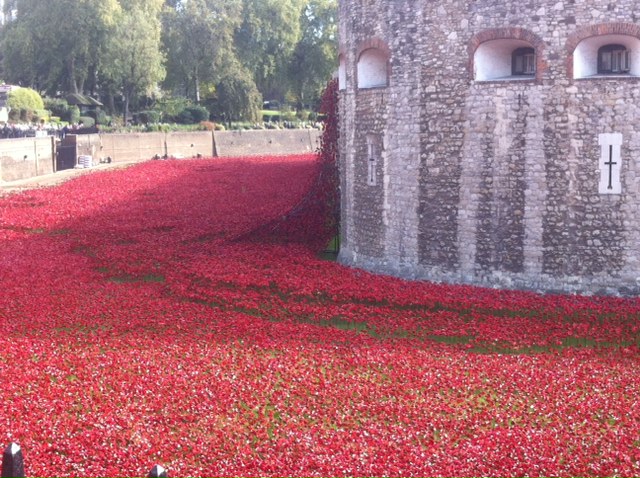Although she’s never made the list in the US, Poppy, as a name, is on a rising graph in England, Scotland, and Wales. She is also popular in Australia and New Zealand.
In Latin the meaning of the Name ‘Poppy’ is ‘Flower’ and ones first thoughts turn to the colourful garden flowers which the dictionary describes as ‘any of a numerous genus of plants having red, orange or white flowers and a milky sap’. Google on the other hand talks about a ‘flowering plant in the subfamily Papaveroideae of the family Papaveraceae. Poppies are herbaceous plants, often grown for their colourful flowers’.
Another Google quote tells us ‘Poppy flowers can vary largely in colour, but are commonly identified as red. This led to an association with death, and may explain the adoption of the poppy as a symbol for rembrance of WW1 victims.
The use of the poppy as a symbol of remembrance was however inspired by the poem ‘In Flanders Fields’ and must be the most familiar subject that we associate with this flower.
On a recent shopping trip, as I had not yet managed to buy a poppy I left my Husband, reading his Bucks Free Press in the coffee shop, to look for a special one that I wanted. I returned empty handed only to be greeted with “Prepare yourself for some bad news”.
It was the announcement in the death column of a very old friend. Poppy; an ex neighbour whom we had known since the early 60s. She had been a very good neighbour and friend to the family when our boys were very young. They affectionately called her Mrs Poppy. She would always do anything for anyone. Her kitchen was open daily for morning tea to all the regular tradesmen – postman, milkman and others. She organised and ran the village help line for the sick and elderly, shopping for others, arranging lifts for doctors appointments and any other matter in which she could help. ‘The Salt of the Earth’ was one description given to her at her funeral.
Years ago she had told me she was born on 11th November, I believe at 11 o’clock which is why she was given her name, so it should not have been any surprise to me that with her death being at this time of the year, the family had chosen that same date and time for her funeral although I was puzzled by the start time given in the paper of 10.45. It was soon apparent that everyone needed to be in the church promptly, for at 11 o’clock, before the actual service started, we were guided to participate with the rest of the country in the two minutes silence that is observed on this day at this time when we remember the gallant men and women who gave their lives in all the conflicts around the world and their family and friends that they left behind.
At this time I also like to add my thanks that I was one of the lucky ones whose Father came home, seemingly uninjured, although he spoke very little of his experiences. It was a very moving start to a funeral – one I have not experienced before nor probably will again.
I just wonder how many other people in this world have had the same date and time for both birth and funeral and what the probability is of this happening on November 11th- especially to someone called Poppy.









